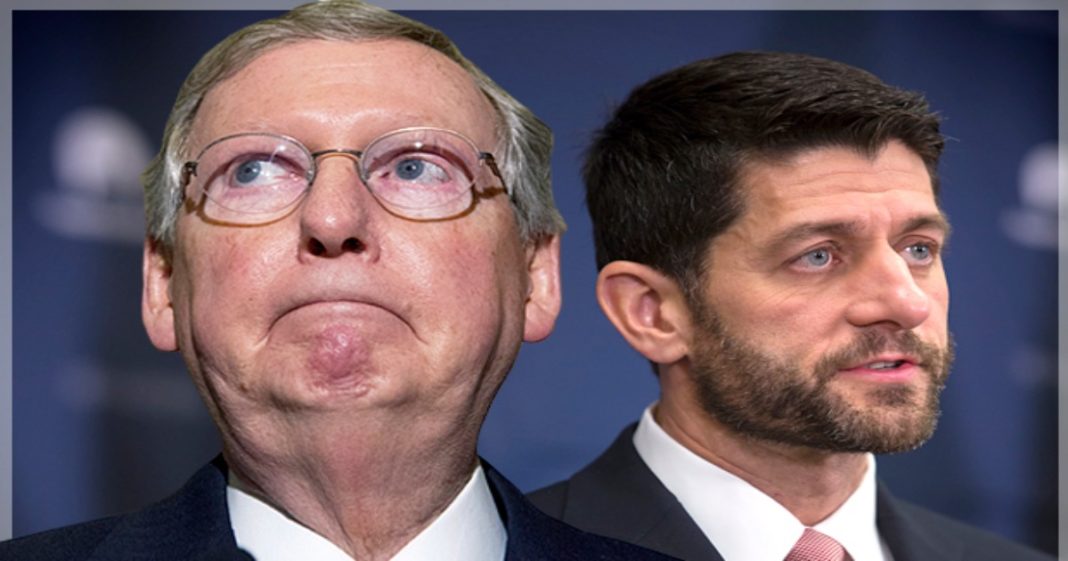We all heard the big news yesterday as Paul Ryan, sucking up to the ironically-named “Freedom Caucus,” managed to ram through a heartless, self-serving, and downright evil bill that does nothing but deprive 24 million Americans of their health care coverage, drive up costs exponentially for individuals over the age of 50, consigns those with “pre-existing conditions” to the funeral home, and guts the Medicaid system. The bill does all of that while also eliminating certain taxes for those lucky people whose incomes are in excess of $200,000 a year and make their money by simply watching dividend checks to roll in.
So, what happens next? The bill will move on to the GOP-controlled Senate. That’s the bad news. However, as lyricist B.G. DaSilva wrote in 1919 when putting lyrics to composer Jerome Kern’s music, “Remember, somewhere the sun is shining…so always look for the silver lining.” Although it is difficult to believe at the moment, there is some reason for hope.
Remember that this is the third attempt in the House to pass this murderous and heartless bill, and it did so only after a great deal of arm-twisting and threats to GOP Representatives who were sitting on the proverbial fence. Aside from the fact that virtually nobody who voted for the current bill even bothered to read it, “Trumpcare 2.0” did not undergo review by the Congressional Budget Office (CBO). This could prove to be a major roadblock for this heartless legislation, as Senate leaders say that they will wait for the CBO report before taking on the bill.
Last month’s CBO report confirmed our worst fears about “Trumpcare 1.0.” However, there has not been time for an in-depth analysis of the costs and consequences of the bill, should it be signed into law. At this point, a number of GOP senators are predicting that there is virtually no way the bill will pass the Senate without major revisions. That would mean the bill would be sent right back to the House of Representatives – and according to those GOP senators, it is highly unlikely that the House will accept such revisions.
Of course, Mitch McConnell is well known for his skulduggery and bag of dirty tricks. The current plan is to use the budget reconciliation process in order to prevent Democrats, who are unified in their opposition, from filibustering. This is a legislative process used in the Senate that permits consideration of any budget bill while limiting debate to twenty hours. Employed 20 times since it was first used in 1980, the budget reconciliation process was used in 2010 to pass the Affordable Care Act in the first place.
But here is were it gets tricky: while Senate Dems may not be able to filibuster the bill, they can argue that parts of the House version do not pass muster with Senate rules on reconciliation. For example, the provision allowing individual states to opt out of requiring insurers to offer minimum coverage has nothing to do with the budget itself and therefore, cannot be passed with reconciliation. Speaking to The Hill, GOP Senator John Cornyn of Texas admitted that, “the bill the House passes will be modified if for no other reason that the reconciliation rules would require it.” Prior to the bill passing the House, Cornyn said that:
“If they pass a bill, which I hope they will, it will come over here and we’ll do our best work to cobble together 51 votes.”
Good luck with that. According to an unnamed senior GOP senator, there is only a 20% of getting the required 51 votes. Of course, that is assuming that a revised House Bill even winds up meeting Senate budgetary rules, which is unlikely.
So, take heart, Progressives. We were dealt a heavy blow yesterday, but as baseball legend Yogi Berra once said, “It ain’t over till it’s over.”



![Senator Schumer: “Single Payer [Health Care] is On The Table”](https://sandbox.trofire.com/wp-content/uploads/2017/07/Universal-Healthcare-218x150.jpg)
